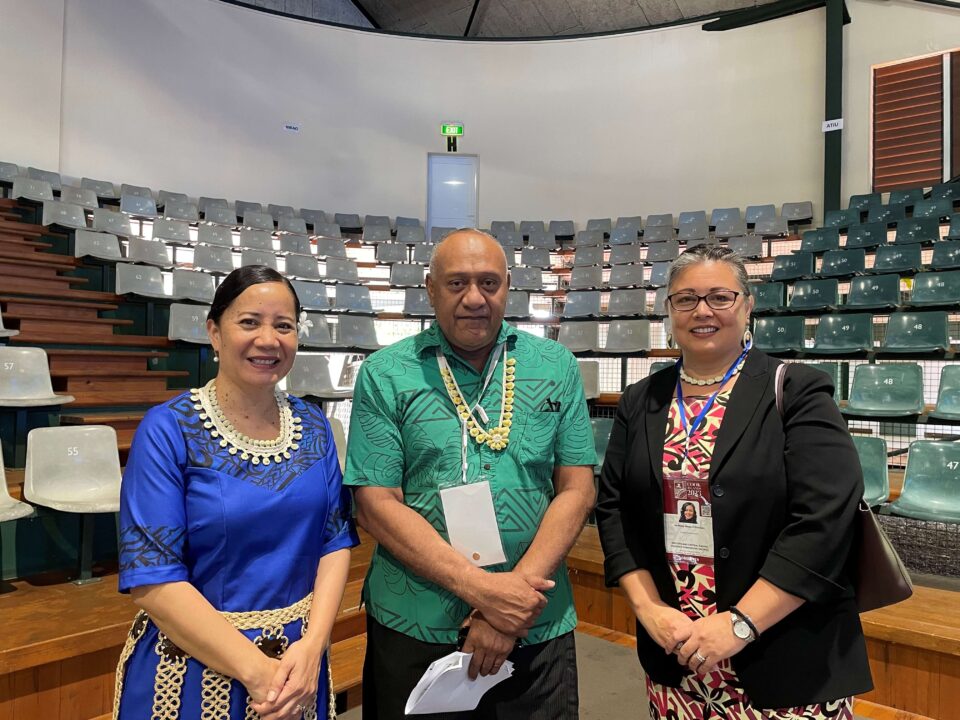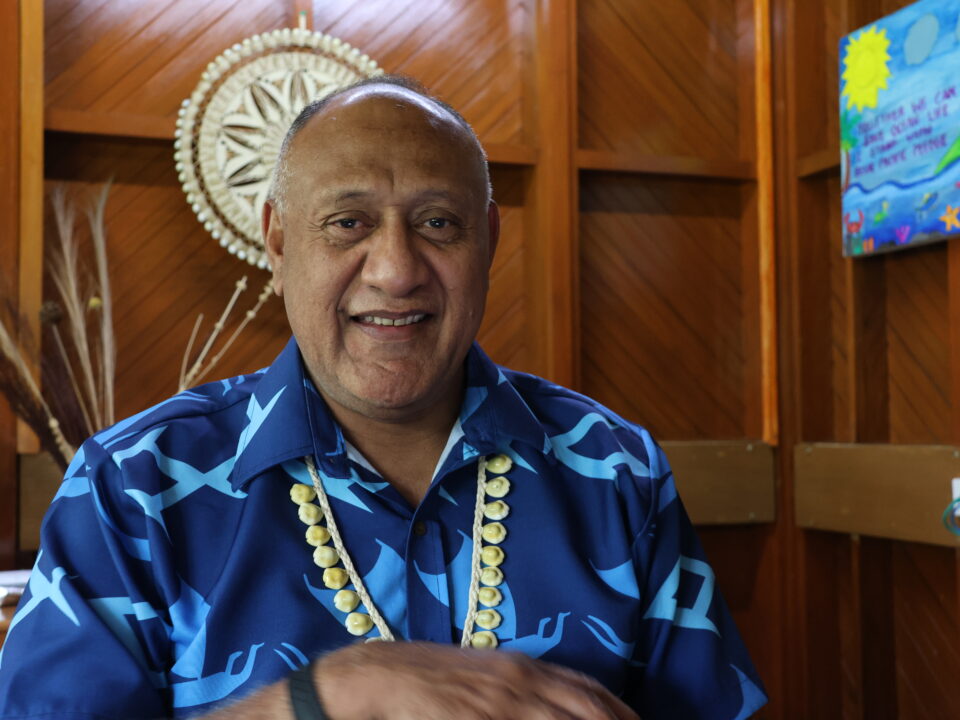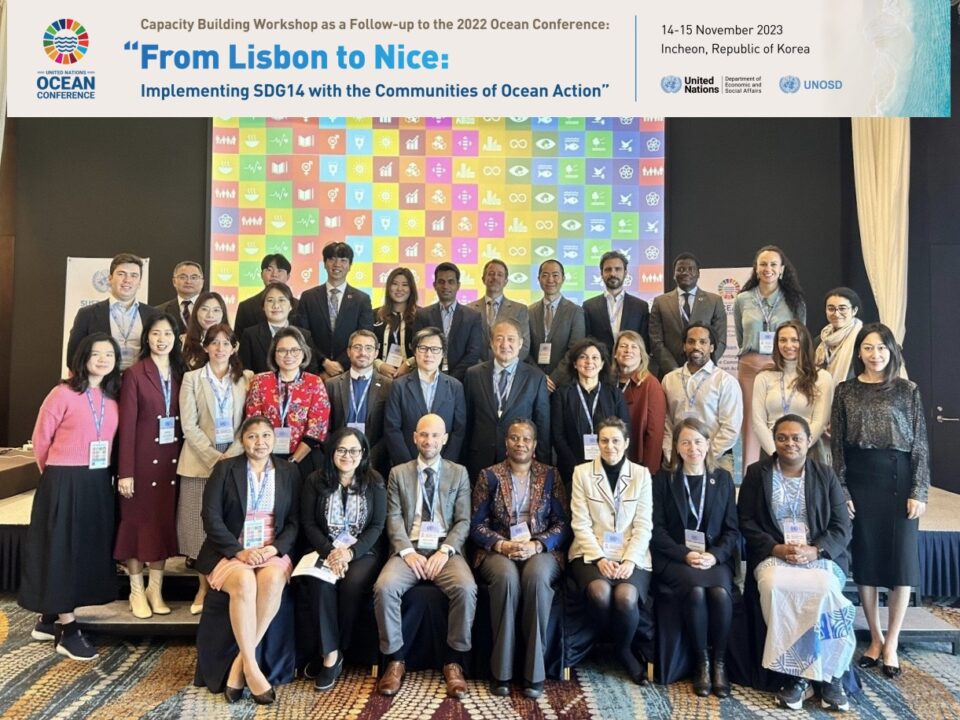
PACIFIC OCEAN ALLIANCE MEETING
Opening Statement by Pacific Ocean Commissioner
7 June 2022
Distinguished Guests,
Excellencies,
Members of the Pacific Ocean Alliance,
Ladies and gentlemen,
Kia orana and Bula Vinaka to you all here in Suva, and joining us virtually from across the Pacific region.
I am very pleased to welcome you all to this meeting of the Pacific Ocean Alliance (POA), my first, since being appointed Secretary General and Pacific Ocean Commissioner, last year.
Much has evolved since the last meeting of the Pacific Ocean Alliance in 2019. We now find ourselves in a much more contested and challenging environment, where we are faced with heightened geostrategic competition, and are continually navigating the impacts, of a global pandemic.
Yet, the health of our ocean and indeed our planet, continues to suffer, as a result of climate change and other anthropogenic pressures. This challenging context will place significant pressure on our ability, to realise our political and sustainable development aspirations. With that in mind, we now find ourselves on the cusp of a period of increased opportunities, through partnerships, for our Blue Pacific Continent!
This year has been very busy with regard to Ocean related events. As we prepare for the second UN Ocean Conference in Lisbon, I am hopeful that this gathering of the POA will provide an opportunity for us all, to share our experiences, and reflect on how we have worked together, how we can collaborate and engage better, and how we can do more, to ensure the survival of our Ocean!
Indeed, our regional environment has evolved significantly, since the Framework for the Pacific Oceanscape was endorsed by Leaders in 2010, and with that, we must evolve too.
Allow me to take a few moments, to reflect on some of these emerging issues, beginning with several challenges, that will continue to shape our oceanscape, in the coming months and years:
We now face new and emerging threats and opportunities, arising from intensifying geopolitical and geostrategic competition, in and around our region. These challenges may have serious implications, on our ability to control our ocean space, in the interest of progressing and realising our own development aspirations.
Secondly, climate change has been a long-standing issue for our region. I am pleased that there is strengthening consensus and recognition of climate change as a climate emergency.
Climate change is changing the very nature and character of our everyday life, here in the Pacific, and nothing can be left to chance any longer. More must be done to elevate global climate ambition, including addressing the climate-ocean nexus, because it will only be through our collective commitment, will we be better placed to capitalise on the opportunities and solutions, that the ocean offers.
Thirdly, our Pacific Island Forum Leaders’ “Declaration on Preserving Maritime Zones, in the Face of Climate Change- related Sea-Level Rise” signals a deep mutual commitment, to safeguard the homes and interests of the Pacific peoples. It is premised on States establishing and depositing their maritime zones, in accordance with UNCLOS, and maintaining those boundaries, regardless of the effects of climate-change related sea level rise.
Fourthly, Pollution. Marine pollution, of all sources, is an acute challenge for our region, and our ocean. Be it the current issue of nuclear waste, or the threat of discharge by Japan, land waster and sedimentation, or plastics. The Pacific region contributes as little as 1.3%[1] of global plastic pollution and other forms of pollution, yet we in the Pacific region are grossly and disproportionately affected by its impacts.
I would offer in response, the 2050 Strategy. One can readily see the synergies, between the Forum Leaders 2050 Strategy, and the Framework for the Pacific Oceanscape. Not surprisingly, the ocean features as a key priority for the 2050 strategy. Leaders identified the protection of our ocean health and integrity, as well as the sustainable management of our islands and ocean resources, as cornerstone priorities for the strategy.
Our fisheries resources are vital to the livelihoods of the Pacific people, and the world. Our region supplies more than half of the tuna needs of the world. The fisheries resource offers many opportunities for our people; through revenue generation, employment opportunities, and importantly, food security. It is therefore critical, that we look after this valuable resource from the growing number of threats. Our region remains the custodians of the healthiest tuna stock in the world, and I acknowledge the work done by SPC and FFA, as well as other partners, in ensuring the sustainability and the integrity of our fisheries resources.
Our Blue Pacific Continent constitutes a total of 48 million square kilometers of ocean. SPREP reports that 19.9% is under some sort of protection, which equates to approximately 9.5 million square kilometers. I acknowledge efforts undertaken by all our members, including the recent efforts of Niue to walk the talk, by delivering on their 2017 Voluntary Commitments with Moana Mahu. I look forward to the presentation by Niue, later today.
This year, we will finally close the long-awaited process, to conserve and sustainably use marine biological of areas beyond national jurisdiction (BBNJ). Our region has worked hard to promote our values, our interests, and our priorities. This negotiation process has seen a great deal of inspiring teamwork from CROP agencies, in support of our Members. I am in no doubt of the criticality of the next three months, but I am also quietly confident that… we can do it!
Finally, I want to also reaffirm the importance of scientifically based approaches, to all our work on Ocean. This can and should be further enriched, by traditional knowledge and customary practices – we all know that our cultural and traditional practices, have stood the test of time. Also critical in ensuring effective ocean governance, is the ways and means to achieve our ocean ambitions – thus sustained ocean financing is a must!
In summary, despite our many challenges, I believe that we are in a good place, to drive and demand action. The future of our ocean continent is in our hands.
In envisioning our future, I often ask – what kind of ocean would we like to pass on to future generations of humans? My answer to that question starts with two others. What would it take to do so? And are we doing enough? I urge you to also challenge yourself in the next two days with these questions.
Drawing inspiration from the ongoing work on the 2050 Strategy, I envision a future where, by 2050, we:
Act as one interconnected ocean continent, to strengthen integrated ocean management, with stronger collaboration and coordination between key relevant sectors, such as fisheries, minerals, transport, tourism, energy and environment;
All our maritime borders would have long been finalized and locked away, with keys to it ultimately in our own hands.
Our seas will be viewed as more than just a platform for tourism and recreation, and rather as an ocean for solutions.
Our Leaders and our people share the same understanding on stewardship of their Blue Pacific Ocean, and on sustainable management of their resources as not based on the undue influence of others.
Having an equitable price tag, on the value of a healthy marine environment, and the service it provides, to help political and business leaders arrive at more efficient and more sustainable decisions, that links economic growth with ocean health.
We must continue to work together, in accelerating action on Oceans, not for ourselves, but for the benefit of the generations after us. At the conclusion of our meeting, let us all ensure that our efforts do not end here, but that we will continue to work, hand in hand, including in terms of keeping each other informed of our various work. OPOC will draft a summary of this meeting, to inform an action plan to elevate the work of the POA, to contribute to the broader ocean work.
And with those few words, I wish you all well in your engagement and discussions, and I look forward to your visionary outcomes in support of securing our future, as the Blue Pacific Continent.
ENDS
[1] https://reports.eia-international.org/wp-content/uploads/sites/6/2020/09/Plastic-Prevention-Gap-Analysis-2020.pdf



